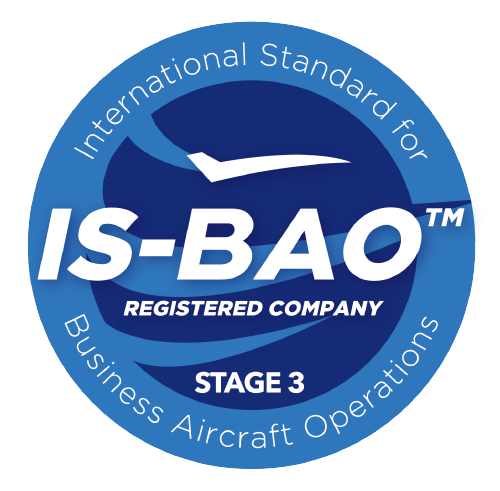THE INTERNATIONAL STANDARD FOR BUSINESS AIRCRAFT OPERATIONS
MORE THAN AN SMS
Launched in 2002, the International Standard for Business Aircraft Operations (IS-BAO™) was developed by the business aviation community and is designed to promote use of high quality operating practices by:
• Establishing a framework for effective safety and operational processes
• Providing tools to facilitate the implementation of best practices
• Delivering a Safety Management System (SMS) appropriate to all operational profiles
As the globally recognized voluntary safety standard, IS-BAO helps operators apply industry best practices by challenging them to review and compare their safety-related policies, processes and procedures, and then make improvements, elevating them to the worldwide standard for business aviation.
Contact ISBAO@IBAC.org with questions.
